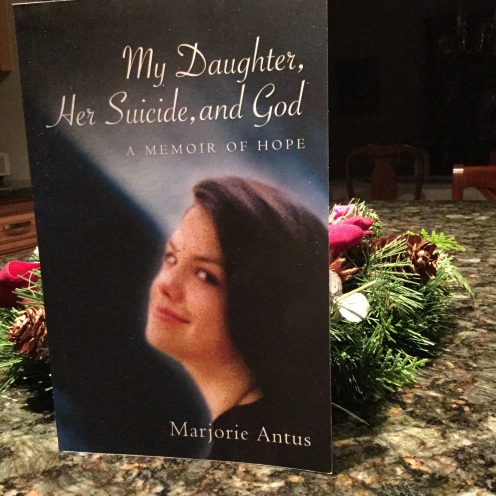My daughter Mary’s suicide in 1995 inflicted so much pain on our family that I ended up calling it “cruel” and Mary “selfish” in the weeks following. As a matter of fact, Mary’s suicide note itself described her self-destructive act as “thoughtless and selfish.” As I read that phrase some weeks after her death, all I could think was, So why were you doing it? Surely you knew better than that.
Her note also romanticized suicide as “darkly mystical,” especially if the perpetrator (victim) was young and had suffered in silence which, clearly, Mary felt she had done. Not a word of her “selfish” talk or her “darkly mystical” talk made any sense to me.
Only much later did a kind of sense begin to take shape in the question that writer Adina Wrobleski poses: “Does it take courage to kill oneself, or is suicide a coward’s way out?”
“Neither,” she answers. “People who are contemplating suicide are not debating large issues of right or wrong, nor are they facing life bravely or ‘slinking off’ to die. The desperate anguish that results in suicide is not ‘taking the easy way out’ . . . Dying from pneumonia is not cowardly or courageous; neither is suicide. The taboo [regarding suicide] causes people to look at suicide as a moral issue rather than a health issue” (Suicide: Why? 85 Questions and Answers About Suicide. Minneapolis, MN: Afterwords Publishing, 1995, p. 22.)
Kay Redfield Jamison also removes suicide from the realm of morality where it has resided for centuries. Not only is she professor of psychiatry at Johns Hopkins University and author of several books about mood disorders, Jamison writes of suicide from the personal experience of having attempted it. “[I] did not consider [my suicide attempt] either a selfish or not-selfish thing to have done. It was simply the end of what I could bear . . . It was the final outcome of a bad disease [bipolar disorder], a disease it seemed to me I would never get the better of” (Night Falls Fast: Understanding Suicide. New York: Alfred A. Knopf, 1999, pp. 290-291).
With proper treatment, Jamison did get the better of it. Seeing suicide for what it is–neither an act of courage or selfishness but, rather, one of illness–is a move toward humanity and prevention.
